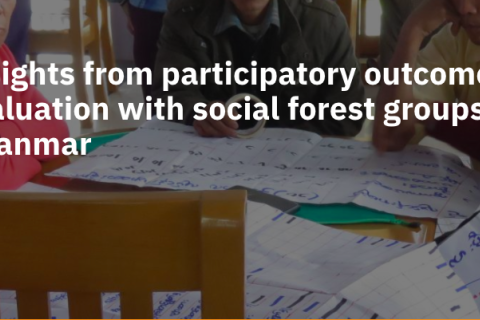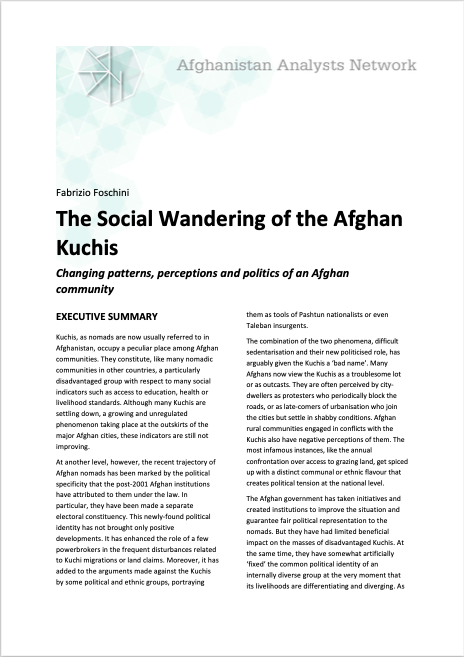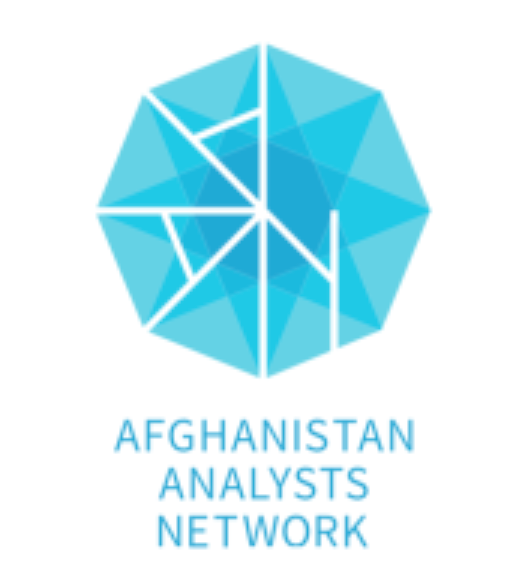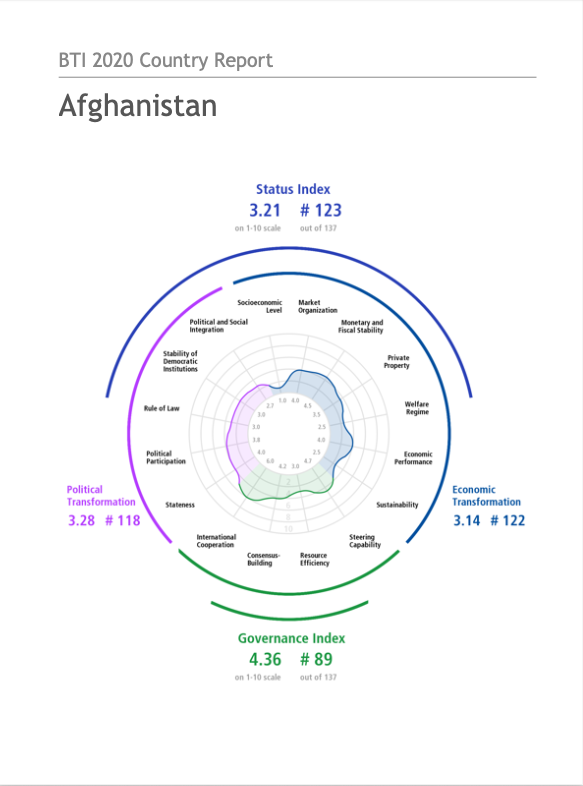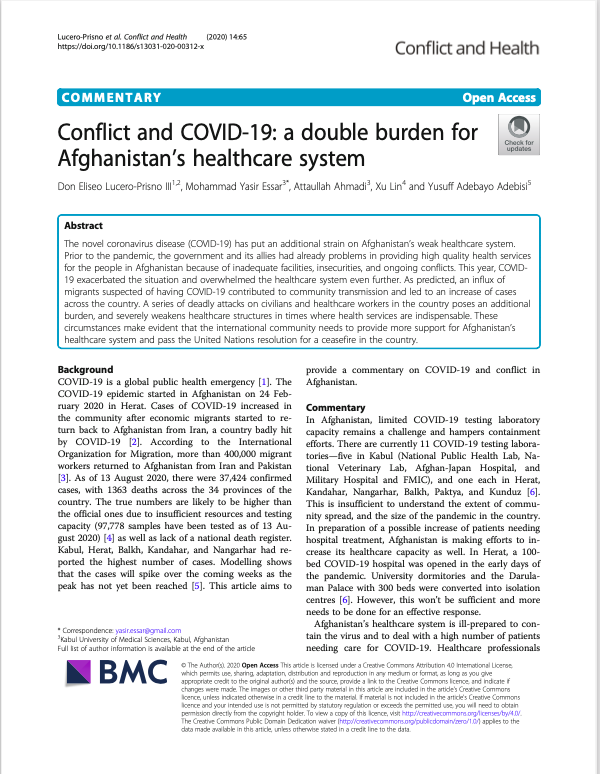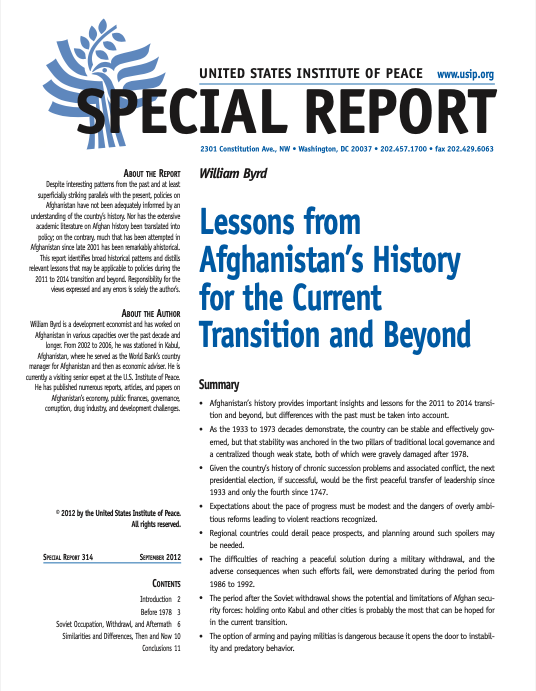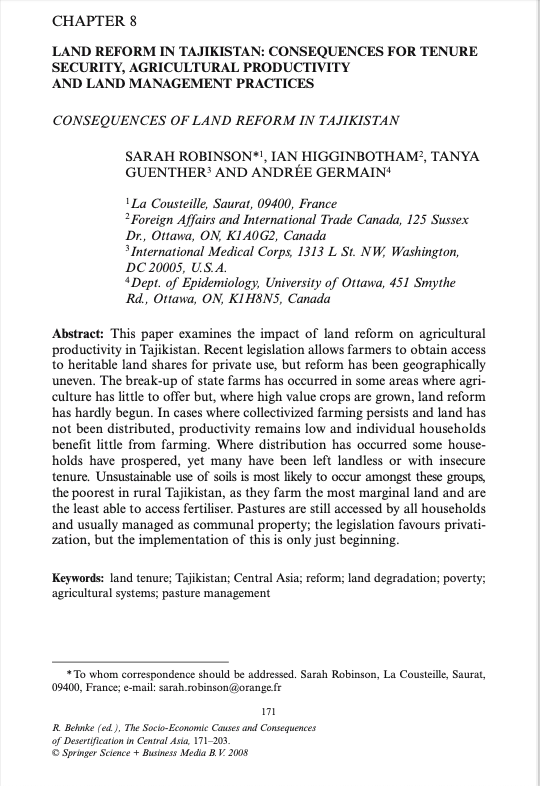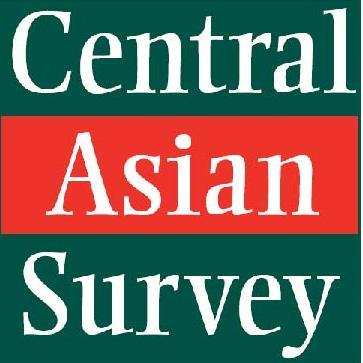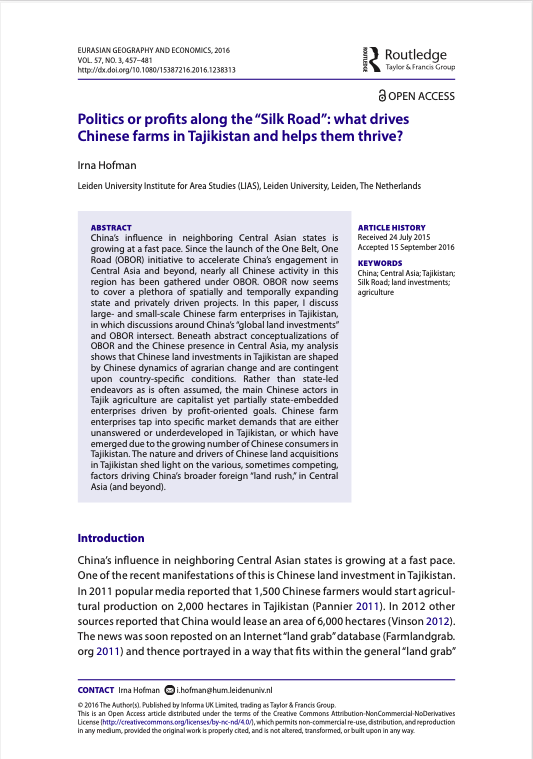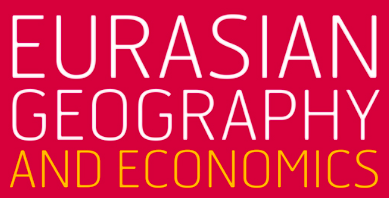
Topics and Regions
Daniel Hayward (UK) worked around Europe for 15 years as a dancer, choreographer and dance writer. Following retraining in sustainable development, he now works as an international development researcher, focused on land relations, agricultural value chains, gender, and migration. As well as working for Land Portal, Daniel is the project coordinator of the Mekong Land Research Forum at Chiang Mai University, and consultant for a variety of local and international NGOs and research institutes.
Details
Location
Contributions
Displaying 491 - 500 of 835The Social Wandering of the Afghan Kuchis
ABSTRACED FROM EXECUTIVE SUMMARY:
Kuchis, as nomads are now usually referred to in Afghanistan, occupy a peculiar place among Afghan communities. They constitute, like many nomadic communities in other countries, a particularly disadvantaged group with respect to many social indicators such as access to education, health or livelihood standards. Although many Kuchis are settling down, a growing and unregulated phenomenon taking place at the outskirts of the major Afghan cities, these indicators are still not improving.
Afghanistan Analysts Network
T
he Afghanistan Analysts Network (AAN) is an independent non-profit policy research organisation. It aims to bring together the knowledge, experience and drive of a researchers, analysts and experts to better inform policy and to increase the understanding of Afghan realities. It is driven by engagement and curiosity and is committed to producing analysis on Afghanistan and its region, which is independent, of high quality and research-based. We are committed to be bi-taraf but not bi-tafawut – impartial, but not indifferent.
BTI 2020 Country Report: Afghanistan
ABSTRACTED FROM EXECUTIVE SUMMARY: In 2014, Afghanistan faced two major interconnected transformations. First was the withdrawal of most international troops. On January 1, 2015, the Afghan National Defense and Security Forces officially took over full defense and security related responsibilities in Afghanistan. Second was the first transition of power through elections in the history of the country. In light of the withdrawal of international troops, the new Afghan government was supposed to focus on developing effective policies related to military, economic and security aspects.
Conflict and COVID-19: a double burden for Afghanistan’s healthcare system
The novel coronavirus disease (COVID-19) has put an additional strain on Afghanistan’s weak healthcare system. Prior to the pandemic, the government and its allies had already problems in providing high quality health services for the people in Afghanistan because of inadequate facilities, insecurities, and ongoing conflicts. This year, COVID- 19 exacerbated the situation and overwhelmed the healthcare system even further. As predicted, an influx of migrants suspected of having COVID-19 contributed to community transmission and led to an increase of cases across the country.
Lessons from Afghanistan’s History for the Current Transition and Beyond
Despite interesting patterns from the past and at least superficially striking parallels with the present, policies on Afghanistan have not been adequately informed by an understanding of the country’s history. Nor has the extensive academic literature on Afghan history been translated into policy; on the contrary, much that has been attempted in Afghanistan since late 2001 has been remarkably ahistorical. This report identifies broad historical patterns and distills relevant lessons that may be applicable to policies during the 2011 to 2014 transition and beyond.
Land Reform in Tajikistan
This paper examines the impact of land reform on agricultural productivity in Tajikistan. Recent legislation allows farmers to obtain access to heritable land shares for private use, but reform has been geographically uneven. The break-up of state farms has occurred in some areas where agriculture has little to offer but, where high value crops are grown, land reform has hardly begun. In cases where collectivized farming persists and land has not been distributed, productivity remains low and individual households benefit little from farming.
Central Asian Survey
Central Asian Survey is the only established peer reviewed, multi-disciplinary journal in the world concerned with the history, politics, cultures, religions, and economies of the Central Asian and Caucasian regions. Original articles, review essays, and book reviews published in Central Asian Survey reflect advances made by social sciences and humanities scholars who ground their research in: the former Soviet republics of Central Asia, the North Caucasus, and the South Caucasus; Chinese Xinjiang, Mongolia, Afghanistan, Iran, and Turkey, as relate to Central Asia.
Politics or profits along the “Silk Road”: what drives Chinese farms in Tajikistan and helps them thrive?
China’s influence in neighboring Central Asian states is growing at a fast pace. Since the launch of the One Belt, One Road (OBOR) initiative to accelerate China’s engagement in Central Asia and beyond, nearly all Chinese activity in this region has been gathered under OBOR. OBOR now seems to cover a plethora of spatially and temporally expanding state and privately driven projects. In this paper, I discuss large- and small-scale Chinese farm enterprises in Tajikistan, in which discussions around China’s “global land investments” and OBOR intersect.
Eurasian Geography and Economics
Eurasian Geography and Economics is a bimonthly peer-reviewed academic journal covering economic and political geography as well as macroeconomics of the Eurasian continent.

